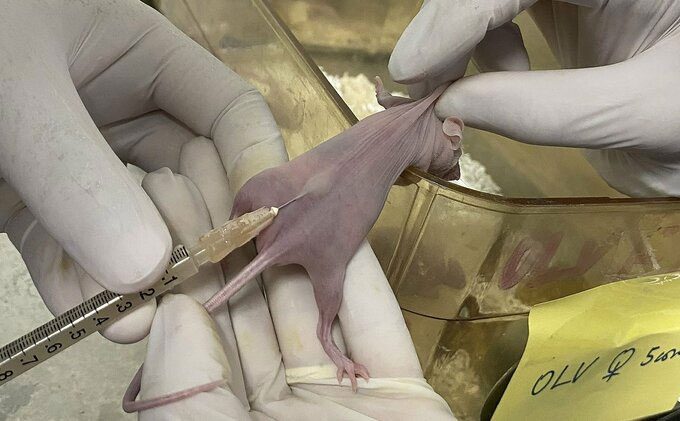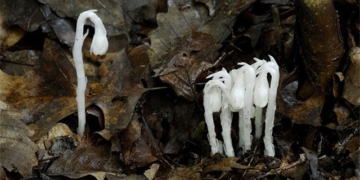Scientists at the Military Medical Academy have successfully researched a new method using high-dose measles vaccine virus to treat ovarian cancer.
The treatment method for ovarian cancer using oncolytic virotherapy has been developed by Dr. Dang Thanh Chung and his team at the Military Medical Academy, who have completed the research phase and are currently in preclinical trial.
During the research process, scientists injected human ovarian cancer cells into mice for testing. Once tumors appeared in the mice, they administered an inactivated virus used to produce the measles vaccine. After monitoring, the size of the tumors significantly decreased compared to the control group of untreated cancer mice.

Injecting ovarian cancer cells to create tumors in experimental mice. (Photo: NVCC).
Analysis of the immune response in mice with ovarian cancer showed that the measles vaccine virus effectively enhanced the mobilization of immune cells such as natural killer (NK) cells, dendritic cells (DC), and macrophages (M) in the spleen and within the tumors in the treated mice compared to the untreated control group.
According to the research team, mice treated with the measles vaccine virus had a longer lifespan compared to the untreated control group.
Based on these results, scientists collaborated with the Center for Vaccine and Biological Product Production (POLYVAC) to create a high-dose measles vaccine virus for purification and concentration of the vaccine virus intermediate; establishing quality standards for use in ovarian cancer treatment. The high-dose measles vaccine virus formulation has been evaluated for safety in small animal models (mice) at the Military Medical Academy and in primates (monkeys) at Rều Island, Quảng Ninh by POLYVAC. Research results indicate that the measles vaccine virus at injection doses of 105, 106, 107 TCID50 is safe and does not produce any significant side effects.
In cell line models and cells isolated from ovarian cancer patients, the measles vaccine virus induces cell death and causes programmed cell lysis (apoptosis).

Tumor after 4 days of injecting cancer cells into mice. (Photo: NVCC).
According to Dr. Dang Thanh Chung, the successful research of this treatment method is highly significant, proving that the use of high-dose measles vaccine virus on small animals and primates is effective.
“This result provides an important scientific basis for continuing to implement clinical trials for ovarian cancer treatment using high-dose measles vaccine virus, opening a new direction in the strategy for ovarian cancer treatment and prospects for other types of cancer,” Dr. Chung stated.
The National Scientific Acceptance Council highly appreciates the research results. This success lays the foundation for treatment trials on volunteer patients. If practical effectiveness is achieved, it may request the Ministry of Health to grant approval for use as an official cancer treatment therapy.
The project is part of the State-level key science and technology program “Research and application of advanced technology for public health protection and care” (KC.10/16-20) managed by the Ministry of Science and Technology.


















































